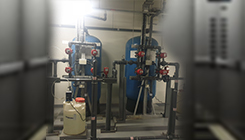Greywater (also spelled graywater, grey water, gray water) or sullage is all wastewater generated in office buildings or households from streams without fecal contamination. Greywater is generally defined as wastewater from baths, showers, basins, and washing machines. Compared to municipal wastewater treatment, Greywater treatment is easier as it generates a large interest in its reuse and recycling. Generally, recycling and re-use are done for toilet flushing, irrigation, and other non-potable uses.
A crucial part of the sustainable management of water resources is reusing wastewater. For the tourist and arid areas in which the biggest water demand is usually in the dry period, Greywater can be an important alternative water source.
The potential ecological benefits of greywater recycling include:
But still, greywater can get contaminated with several types of insoluble and soluble substances and shall be properly treated. Contaminants like traces of food, hair, dirt, grease, and certain household cleaning products can be contaminated in greywater. Mostly, media filtration and ultrafiltration based treatment technologies are used for this. For preventing bacteria, particles, and viruses that are passing through are prevented by Ultrafiltration. Greywater can ultimately be disinfected with ultraviolet and/or chlorination, for ensuring residual disinfection at point-of-use. It is a very stable process and compact design and High effluent quality and low sludge production.

Media Filtration for Water Treatment

Grey Water Treatment Plant Ultrafiltration